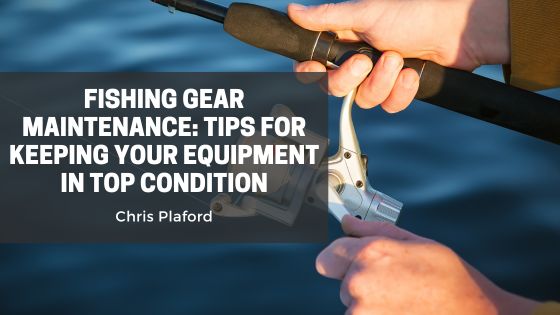Fishing gear maintenance ensures your equipment remains in top condition, allowing you to enjoy successful and stress-free fishing trips. Proper maintenance not only prolongs the lifespan of your gear but also improves its performance and reliability on the water. Whether you are a casual angler or a seasoned fishing enthusiast, a regular maintenance routine can help you get the most out of your equipment.
Cleaning Your Gear
One of the first steps in fishing gear maintenance is cleaning your gear after each use. Over time, your fishing rods, reels, and tackle may collect dirt, debris, and saltwater, which can cause corrosion and other damage. After fishing, give your equipment a good rinse with fresh water, being careful to remove any salt or dirt and protect any delicate parts or moving parts.
Inspect Your Gear
After cleaning, inspect your fishing gear for any wear or damage. Check fishing lines for fraying or abrasions, inspect rod guides for cracks or corrosion, and examine reel mechanisms for signs of rust or corrosion.
Regular Care
Regularly lubricating your fishing reels is crucial for maintaining smooth operation and preventing corrosion. Apply a small amount of reel oil to moving parts, such as the handle, bail, and spool, to keep them lubricated and functioning properly. Additionally, consider greasing the gears and bearings of your reels to reduce friction and extend their lifespan.
Proper Storage
Proper storage is essential for preserving the integrity of your fishing gear. Store rods and reels in a cool, dry place away from direct sunlight and humidity. Use rod socks or protective cases to shield your rods from scratches and dings during transportation and storage. Similarly, store fishing tackles in tackle boxes or organizers to keep them organized and protected from the elements.
Fishing Line Maintenance
Maintaining a fishing line is crucial for preventing break-offs and ensuring a successful fishing trip. Inspect your fishing line regularly for wear or damage, such as nicks, abrasions, or discoloration. Replace old or damaged lines as needed to maintain optimal strength and performance. Additionally, consider re-spooling your reels with fresh lines at the start of each fishing season to minimize the risk of break-offs and tangles.
Fishing Hook Maintenance
Properly maintaining fishing hooks is essential for ensuring a secure hookset and preventing lost fish. Inspect hooks for signs of rust, corrosion, or dullness, and sharpen them using a hook file or sharpening stone as needed. Additionally, consider replacing old or damaged hooks with new ones to maintain optimal performance and reliability.
Other Fishing Accessories & Concerns
Lastly, maintain other essential fishing accessories, such as nets, pliers, and cutting tools. Clean and lubricate these tools regularly to prevent rust and corrosion, and inspect them for signs of wear or damage.
Proper maintenance is essential for keeping your fishing gear in top condition and ensuring a successful and enjoyable fishing experience. By implementing a regular maintenance schedule and taking quick action when something goes wrong, you can extend the life of your equipment, enhance its functionality, and increase your success on the water.
